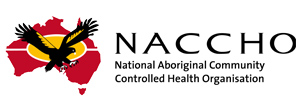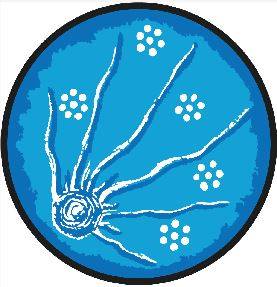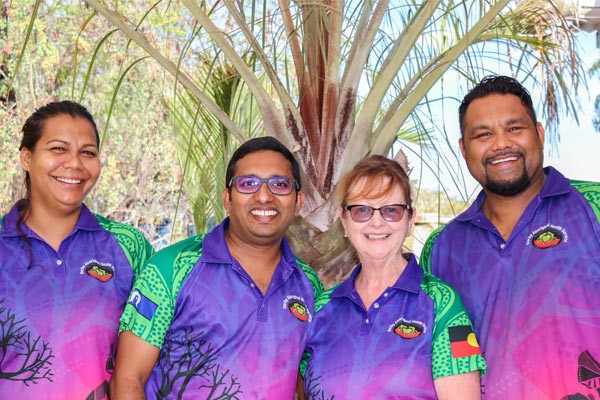Community Controlled Health
NACCHO (National Aboriginal Community Controlled Health Organisation)

The National Aboriginal Community Controlled Health Organisation (NACCHO) is the national peak Aboriginal health body representing Aboriginal Community Controlled Health Services throughout Australia.
An Aboriginal Community Controlled Health Service (ACCHS) or an Aboriginal Medical Service (AMS) is a primary health care service initiated and operated by the local Aboriginal community to deliver holistic, comprehensive, and culturally appropriate health care to the community, which controls it (through a locally elected Board of Management).
In keeping with the philosophy of self-determination, Aboriginal communities operate over 140 AMSs across Australia. They range from large multi-functional services employing several medical practitioners and providing a wide range of services, to small services without medical practitioners, which rely on Aboriginal health workers and/or nurses to provide the bulk of primary care services, often with a preventive, health education focus. The services form a network, but each is autonomous and independent both of one another and of government. The integrated primary health care model adopted by ACCHSs/AMSs is in keeping with the philosophy of Aboriginal community control and the holistic view of health that this entails.
'Aboriginal health is not just the physical well being of an individual but is the social, emotional and cultural well being of the whole community in which each individual is able to achieve their full potential thereby bringing about the total well being of their community. It is a whole-of-life view and includes the cyclical concept of life-death-life.' (NAHS, 1989).
The solution to address the ill health of Aboriginal people can only be achieved by local Aboriginal people controlling the process of health care delivery. Local Aboriginal community control in health is essential to the definition of Aboriginal holistic health and allows Aboriginal communities to determine their own affairs, protocols and procedures.
AHCWA (Aboriginal Health Council of Western Australia)

At a state level AHCWA is the peak body for the 21 Aboriginal Community Controlled Health Services (ACCHSs) in Western Australia. They are an evolving organisation that acts as a forum to lead the development of Aboriginal Health policy, to influence and monitor performance across the health sector, to advocate for and support community development and capacity building in Aboriginal Communities. They advocate for the rights and entitlements of all Aboriginal people throughout Western Australia, at a local, regional, State and National level.
AHCWA’s vision is to see the health status of Aboriginal people in Western Australia at least equal to that of the non-Aboriginal population by 2025. They are able to do this by:
- Supporting and acting as a forum for our Aboriginal Community Controlled Health Services throughout Western Australia
- Leading the development of Aboriginal health policies through identifying and prioritising health issues in our communities
- Influencing and monitoring performance across the health sector
- Advocate for Aboriginal Community development by providing support to members, family and community
- Building the capacity of the health workforce to improve the social, emotional, general health and wellbeing of Aboriginal people
- Developing and influencing policy decisions by networks with relevant Federal & State Government bodies, Local government, community organisations and external stakeholders
- Providing research, policy development, strategic planning and advice on relevant Aboriginal health and related issues to the ACCHSs sector
- Advocating with Government and other health service providers about the health needs of Aboriginal communities in Western Australia
- Implementing programs that promote and improve the health and wellbeing of Aboriginal people and communities

